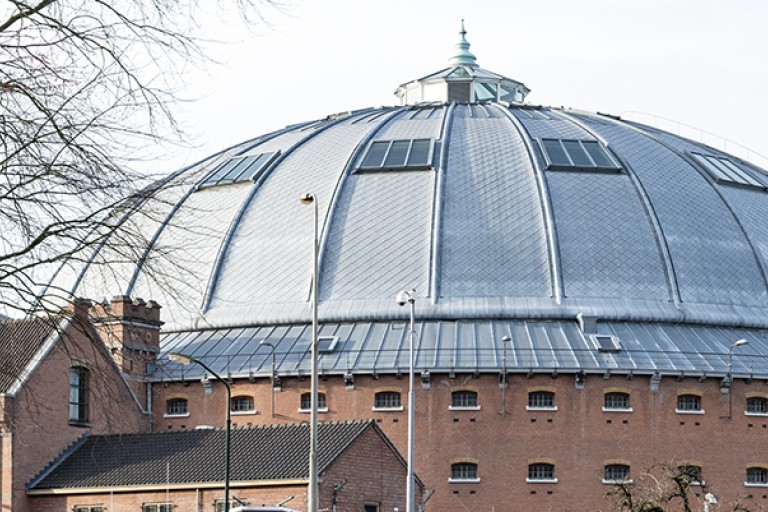
Logistics conflicts with green
Logistics conflicts with green. That's what people often think. With the concept of an Urban Farm in the former koepelgevangenis in Breda, our Logistics students show that things can be done differently.
‘Logistics doesn't sound fancy,’ that's how Letty Zhu begins her story. ‘It evokes associations with trucks, a lot of noise and pollution. Actually, the challenge is how to manage critical flows in a responsible way. And that’s exactly what we are teaching our students.’
Letty Zhu is lecturer at the Academy for Built Environment & Logistics and in the past few months she supervised students in creating an Urban Farm operational and logistics plan in the city of Breda. Letty herself studied at Larenstein and Wageningen University and is an agronomist.
Urban agriculture
‘In many cities urban agriculture is a growing initiative as it allows for a simple and rather inexpensive solution to the food supply problem and lack of agricultural land,’ Letty explains. ‘Together with the Urban Living Lab, my students explored the possibilities of setting up a real farm in the inner city of Breda. Because why would you produce something at location A when you need it at location B?’
A sustainable indoor greenhouse
‘The students have chosen the former koepelgevangenis as the location for their fresh vegetable production. In this remarkable building, which used to be a prison, the students created an indoor greenhouse concept and its related logistic solutions. Completely based on a sustainable strategy and an energy saving approach, which means a maximum use of natural light and a minimum use of water. The design looks really cool!’
Last mile logistics
‘Talking about cool,’ Letty continues, ‘we are dealing with perishable products, which must be transported and stored in a temperature-controlled condition and that’s exactly the next level logistics challenge. How do we get these products to the restaurants, hotels, and small shops in the area? Not with a truck. It was up to the students to come up with creative ideas for that last mile. Just think of small electric vehicles and a small van with a removable roof refrigeration unit.’
A cucumber and a tomato don't mix!
‘The focus in the project was on product handling and city distribution, but the students also thought about sustainable forms of packaging. Just think of cardboard boxes or foldable plastic boxes that can be cleaned and reused. And one more thing, a cucumber and a tomato don't mix! They can’t be stored together. Cucumbers will overripe and turn yellow. That’s something you have to consider when storing and transporting.’
Social impact
‘What I like about working on a research project with students,’ Letty says, ‘is that you never know what the outcome will be. You build it up together. What I do know, is that projects like this definitely contribute to sustainable awareness and that is also worth a lot to me. A tomato is not produced in a factory. A tomato grows! Showing is important. Hopefully it gets people thinking. How do we build a green community together? How can we reduce food waste? I teach my students not only to investigate the financial aspects. Make it broader and focus primarily on the social impact.’
What next?
‘I always try to build on what we have done before in education,' Letty concludes, 'so the idea is definitely to really test this great concept in the koepel next year.’
The Urban Farm Project has been an exceptional opportunity to test my skills and expand my knowledge towards sustainable business development. It was an honor contributing; knowing the positive impact it has on the community of Breda
Shulaika Kollenburg, Logistics student